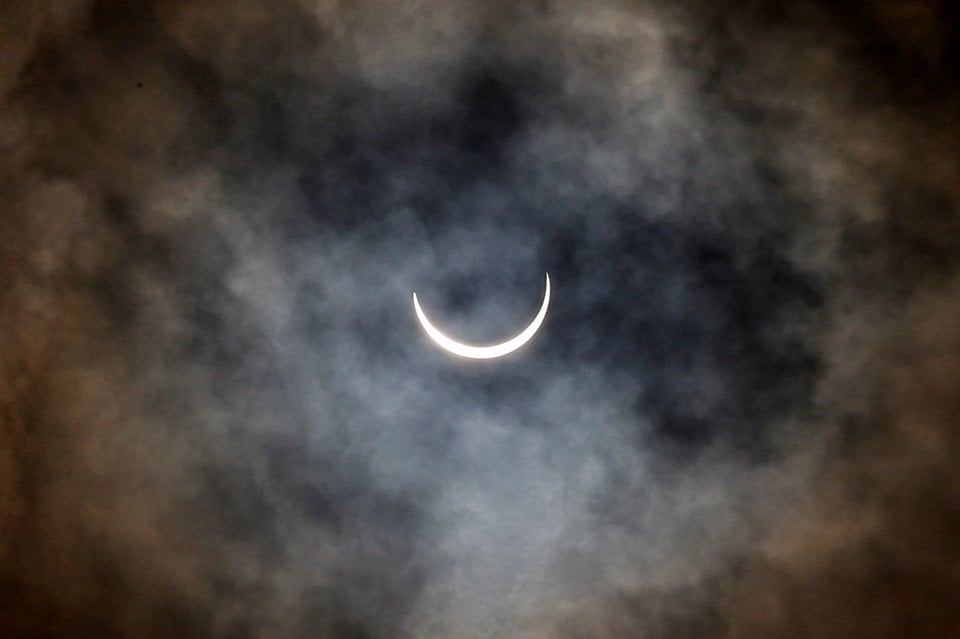
The eclipse was visible for a few hours and reached its peak around 11:40am, according to meteorologists.
According to Reuters, the annual event occurs when the moon covers the sun’s centre but leaves its outer edges visible to form a ring. In most years, two solar eclipses are visible from somewhere on Earth. The maximum number is five.
What is a solar eclipse?
A solar eclipse is when the moon passes directly between the sun and the Earth. According to Accu Weather, the distance between the moon and the Earth at the moment of the eclipse dictates the type of the eclipse that can be viewed. The moon, however, does not always block out the entire sun.
Why is it called a ring of fire?
The term ‘ring of fire’ was coined seeing the bright ring of sunlight around the moon at the height of the annular solar eclipse.
Safety precautions
If you’re planning to view the ring of fire, then make sure to do it with proper eye protection. Viewing the sun directly can cause major damage to your eyes – which may even be permanent.
In some cases, a pair of sunglasses is also not enough to curtail the big star’s harmful rays.
A solar filter or a special pair of eclipse glasses designed for safe viewing of a solar eclipse would be recommended.
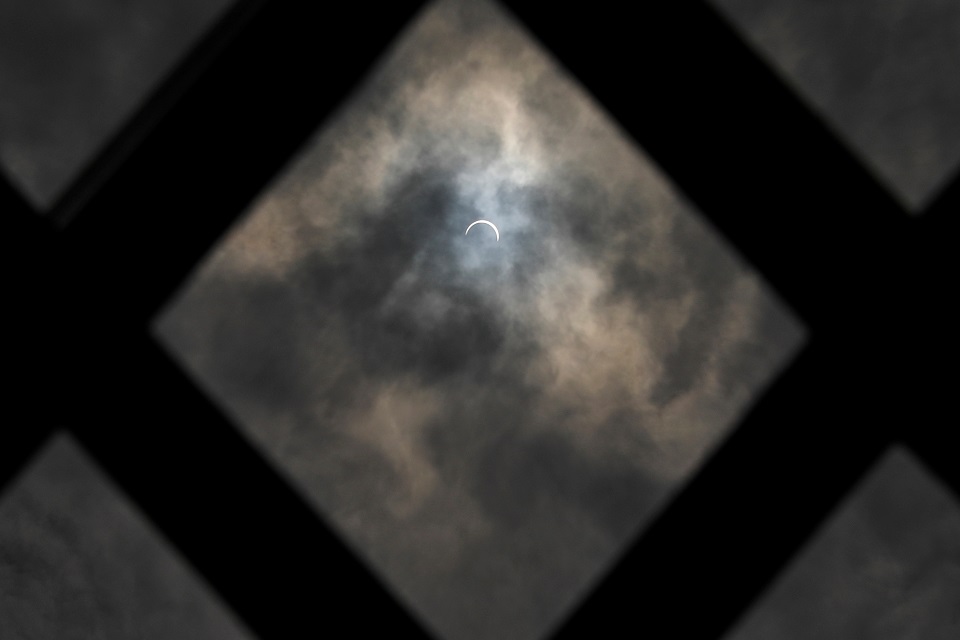 A partial solar eclipse is seen from New Delhi, India. PHOTO: REUTERS
A partial solar eclipse is seen from New Delhi, India. PHOTO: REUTERS People stand next to a model of the earth, the moon and the sun as a partial solar eclipse is seen from Mount Scopus in Jerusalem. PHOTO: REUTERS
People stand next to a model of the earth, the moon and the sun as a partial solar eclipse is seen from Mount Scopus in Jerusalem. PHOTO: REUTERS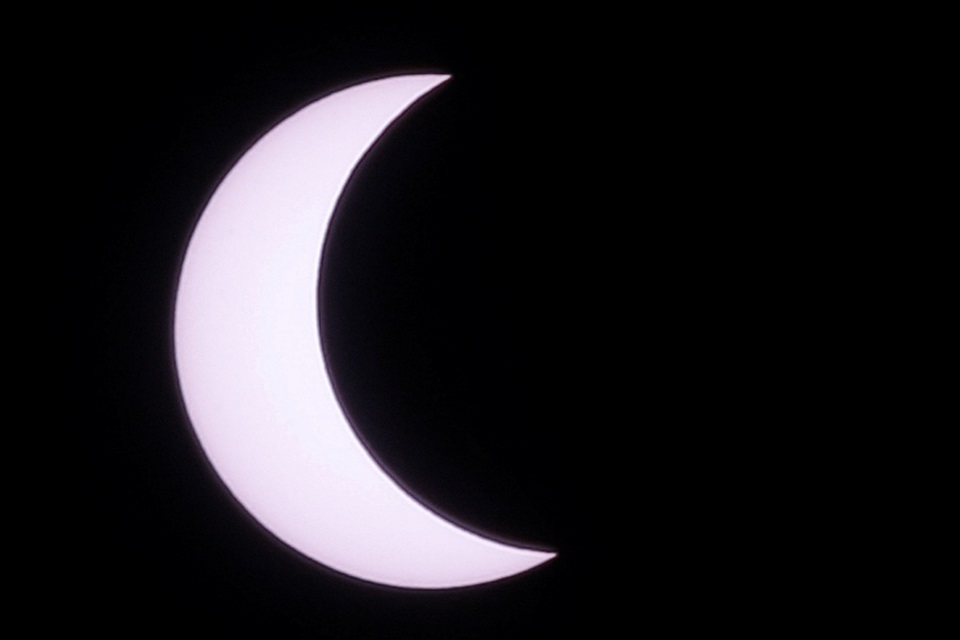 A photo shows a partial solar eclipse observed in Riyadh, Saudi Arabia. PHOTO: REUTERS
A photo shows a partial solar eclipse observed in Riyadh, Saudi Arabia. PHOTO: REUTERS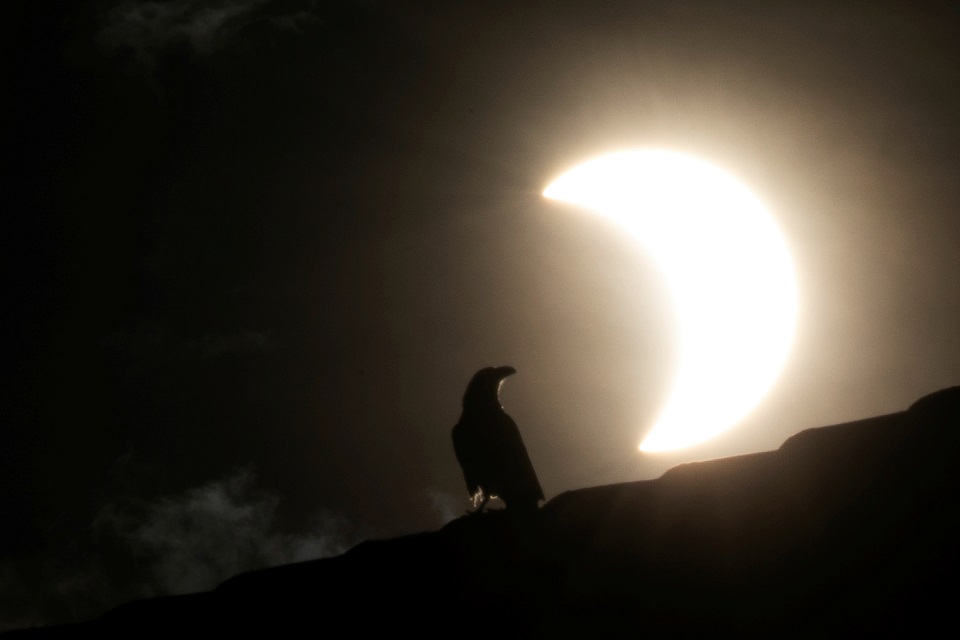 A crow stands on a roof as a partial solar eclipse is observed in Nairobi, Kenya. PHOTO: REUTERS
A crow stands on a roof as a partial solar eclipse is observed in Nairobi, Kenya. PHOTO: REUTERS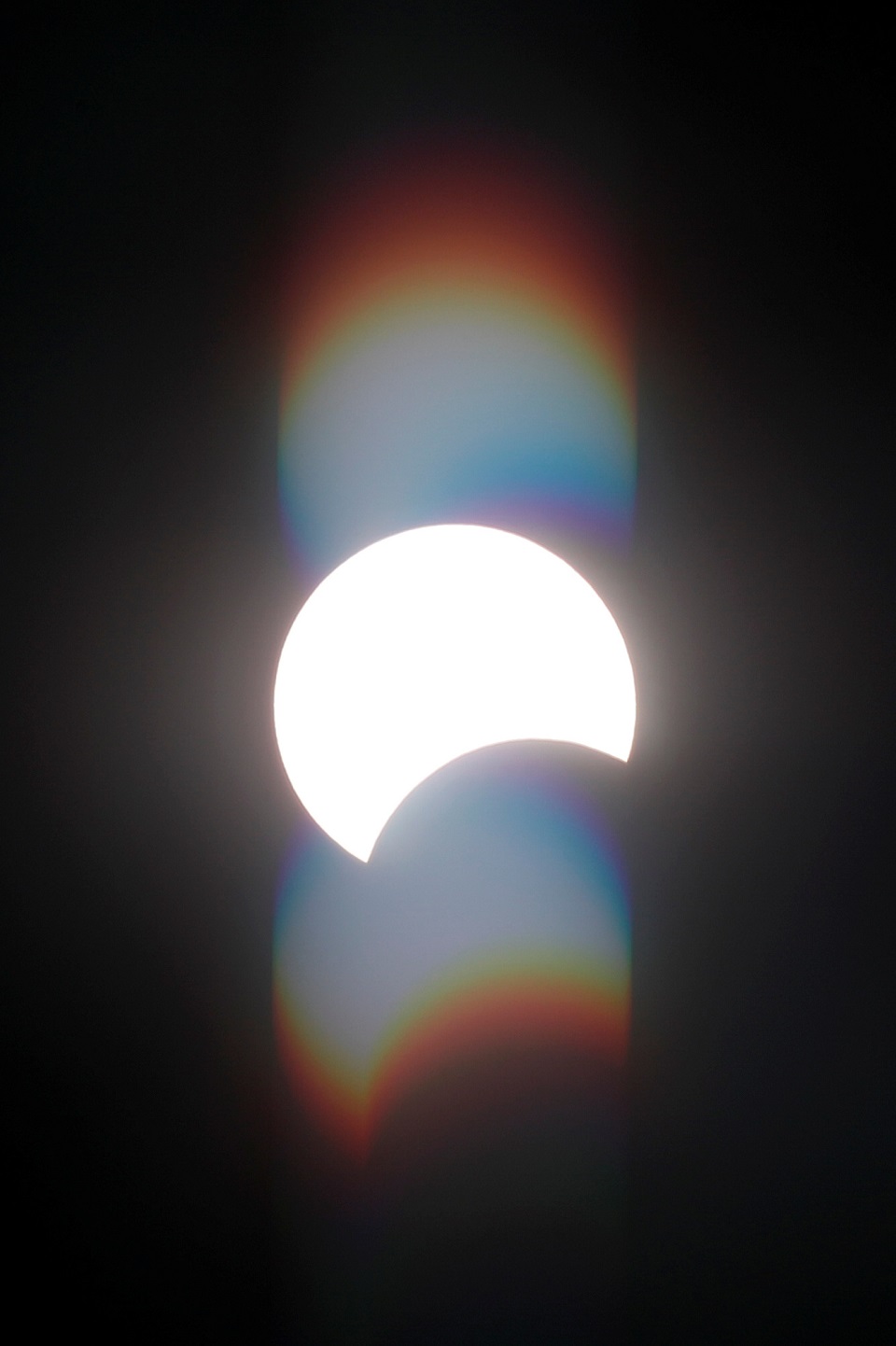 A partial solar eclipse is seen from the Cairo suburb of Maadi, Egypt. PHOTO: REUTERS
A partial solar eclipse is seen from the Cairo suburb of Maadi, Egypt. PHOTO: REUTERS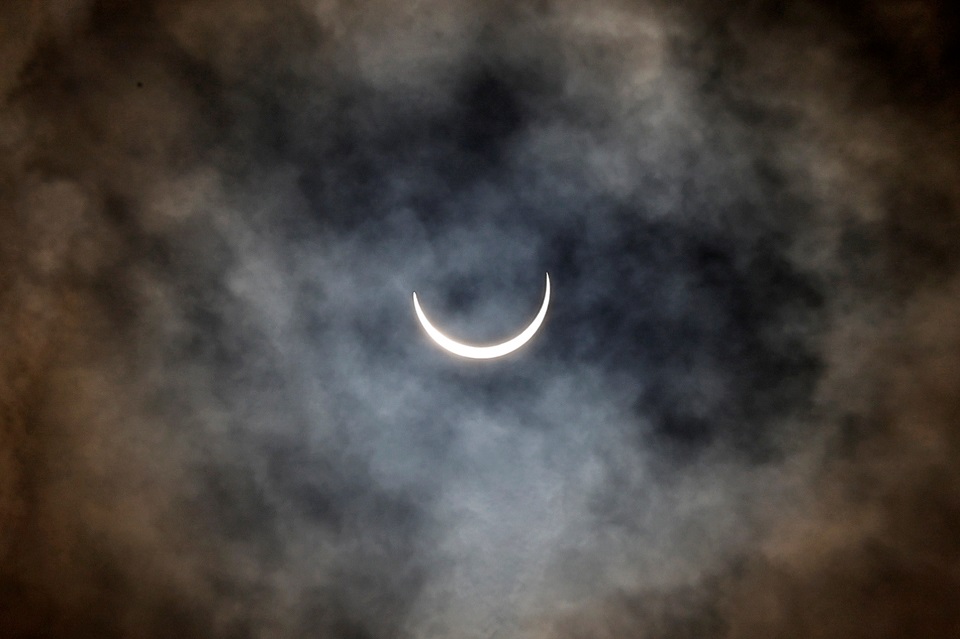 A partial solar eclipse is seen from New Delhi, India. PHOTO: REUTERS
A partial solar eclipse is seen from New Delhi, India. PHOTO: REUTERS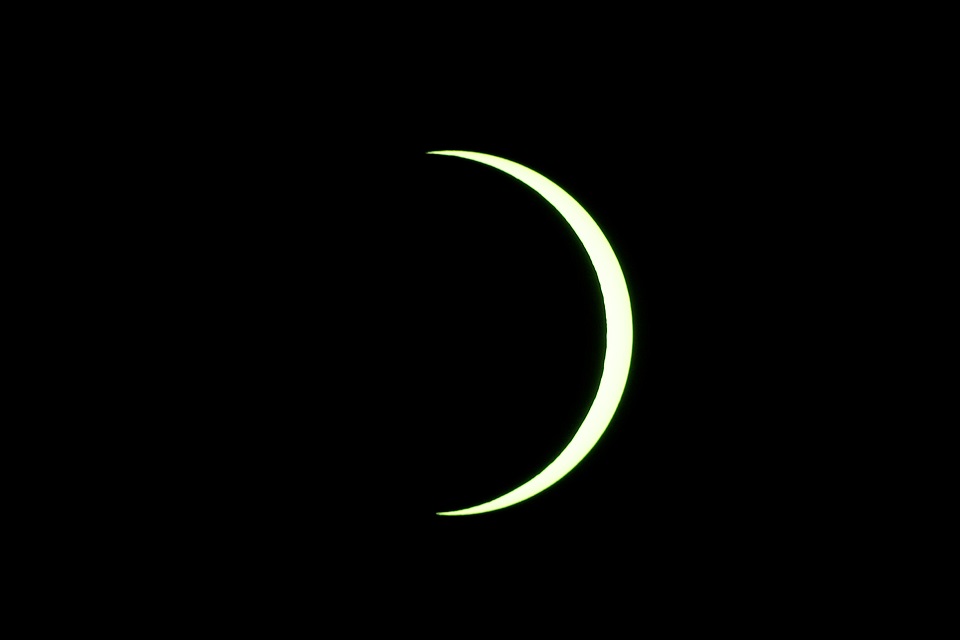 A partial solar eclipse is pictured along Clifton beach, as the spread of the coronavirus disease (COVID-19) continues, in Karachi, Pakistan. PHOTO: REUTERS
A partial solar eclipse is pictured along Clifton beach, as the spread of the coronavirus disease (COVID-19) continues, in Karachi, Pakistan. PHOTO: REUTERS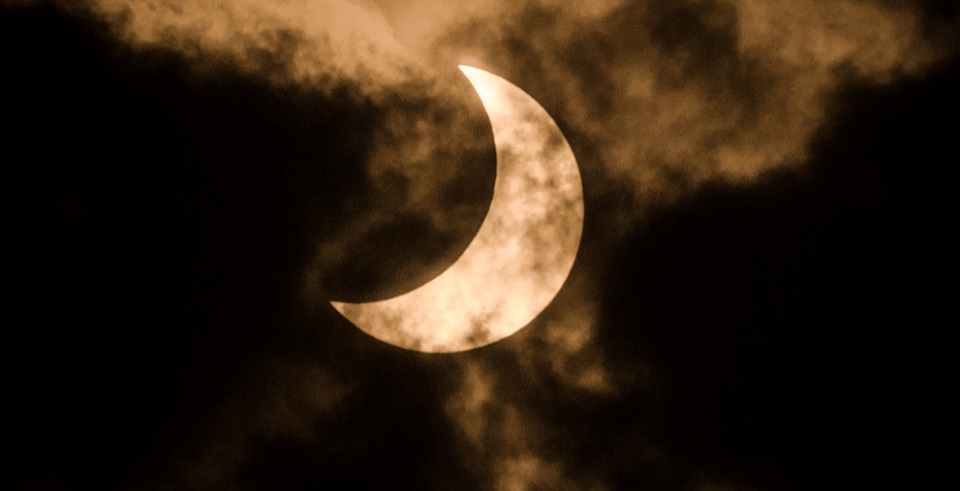 PHOTO: AFP
PHOTO: AFP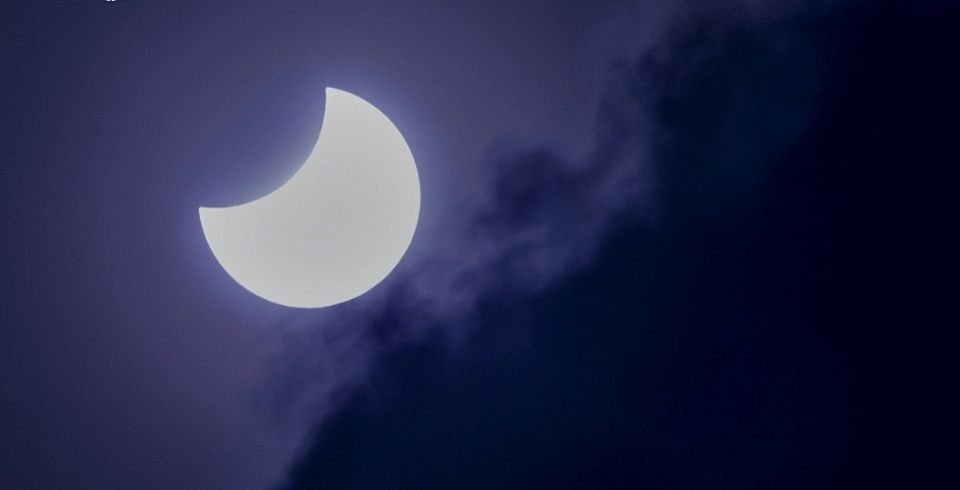 PHOTO: AFP
PHOTO: AFP
It's looking so beautiful 😍😍 from Rajasthan #SolarEclipse2020pic.twitter.com/L8Q3E2WOoE
— Satt2 (@srathod33) June 21, 2020
Beautiful #SolarEclipse2020 , great to watch it here in Delhi today pic.twitter.com/RjGT1naIan
— Maya Kadosh (@MayaKadosh) June 21, 2020
Solar Eclipse 2020
Shot with #GalaxyS20Ultra
with NiSi ND1000 filter#SolarEclipse2020#สุริยุปราคาpic.twitter.com/AgIHHpwz7x
— Nelson and His Planet (@nelsonplanet_) June 21, 2020
Karachi fully #SolarEclipse2020#SolarEclipse2020pic.twitter.com/tXLZb6F2dn
— Waqas Ahmed (@waqasahmedMBA) June 21, 2020
Ok so this one's captured using the 📷 #SolarEclipse2020pic.twitter.com/PxfVfQDsEe
— Hasiba Amin 🌈 (@HasibaAmin) June 21, 2020
The Dramatic “Ring of Fire” above Burj Khalifa. #SolarEclipse2020#Ringoffire2020#Dubaipic.twitter.com/e7xsdFTaS2
— Faysal jameel (@F_Jamil92) June 21, 2020


1732519298-0/BeFunky-collage-(85)1732519298-0-165x106.webp)
1732611352-0/lamar-(5)1732611352-0-165x106.webp)
1732610018-0/BeFunky-collage-(91)1732610018-0-165x106.webp)

1732603037-0/BeFunk_§_]__-(51)1732603037-0.jpg)
1732610150-0/Untitled-design-(3)1732610150-0-270x192.webp)

1732610854-0/Untitled-design-(68)1732610854-0-270x192.webp)
1732608486-0/BeFunk_§_]__-(54)1732608486-0.jpg)






COMMENTS
Comments are moderated and generally will be posted if they are on-topic and not abusive.
For more information, please see our Comments FAQ